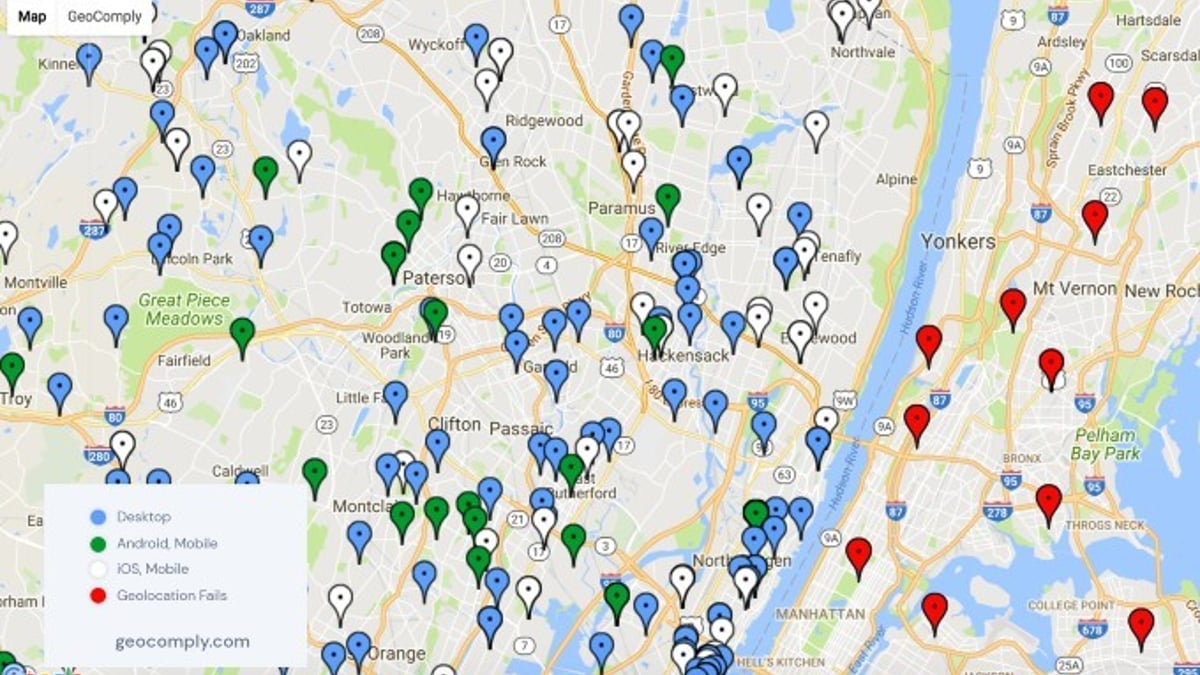Geofencing Technology Limiting Wagering to Within State Boundaries Works Well, Tech Expert Says

The technology that casinos will use for Arkansas online sports betting can detect if a bettor is within its borders and block those who are outside the state, an industry expert told Gambling.com.
Chad Kornett, vice president of global government relations for GeoComply, said the company’s technology provides instant identification of where a bettor is located. The Vancouver, Canada-based company provides geolocation compliance and fraud-security services.
If someone outside a geofenced area attempts to place a bet, that person’s wager is instantly denied, he said. Geofencing is an industry term applied to the invisible barrier around a designated area, in this case, Arkansas’ borders.
Senator Calls Geofencing a ‘Joke’
Geofencing became an issue in Arkansas this week after Gambling.com posted a story quoting a state senator who called the technology an “absolute joke.”
The quote, from Sen. Mark Johnson, R-Little Rock, was pulled from a letter he recently wrote to the state Racing Commission.
The commission, which oversees gaming in the state, approved a rule change last week to allow mobile sports betting in Arkansas. The proposed rule change now goes to the Arkansas Legislative Council, possibly at its next meeting on Jan. 28, for final approval. If approved, mobile sports wagering could operate in Arkansas by the end of February.
In the letter, Johnson said the Racing Commission needs to be prepared at the Arkansas Legislative Council meeting to defend the proposed rule change.
Among other issues, Johnson objected to geofencing, asserting that “modern technology” allows people to mask where they are located.
“I have verified with a software developer that specializes in mobile applications that this is a fact, adding that it is very easy within the U.S. to fake where the transmission is coming from,” Johnson wrote.
Kornett said GeoComply uses Wi-Fi, GPS and cellular data to determine where a person is located. The company also can detect if people are trying to mask their location.
“We are aware of all the mechanisms to attempt to spoof geolocations,” he said. “We continuously monitor and block threats that emerge in real-time.”
Geofencing Pinpoints Detailed Locations
In some states, such as Tennessee, the entire state is geofenced for mobile sports betting purposes. In other states, geofencing can restrict mobile betting to the counties that allow it. Take Louisiana for example. Sports betting is not permitted in all its parishes. Players who want to enjoy betting with brands like BetMGM Louisiana will have to be on the territory of a legal parish to use the platform.
In Washington, D.C., mobile sports betting is legal, but not inside federal buildings. Attempted bets from inside those buildings are instantly detected and blocked, Kornett said.
At a tribal casino in Mississippi, bets are blocked in a walkway because it crosses nontribal land, he said.
In a live demonstration for Gambling.com, Kornett used a map of New Jersey, showing in real-time where every attempted bet was coming from second-by-second, whether inside the state or elsewhere. Illegal bets were blocked.













